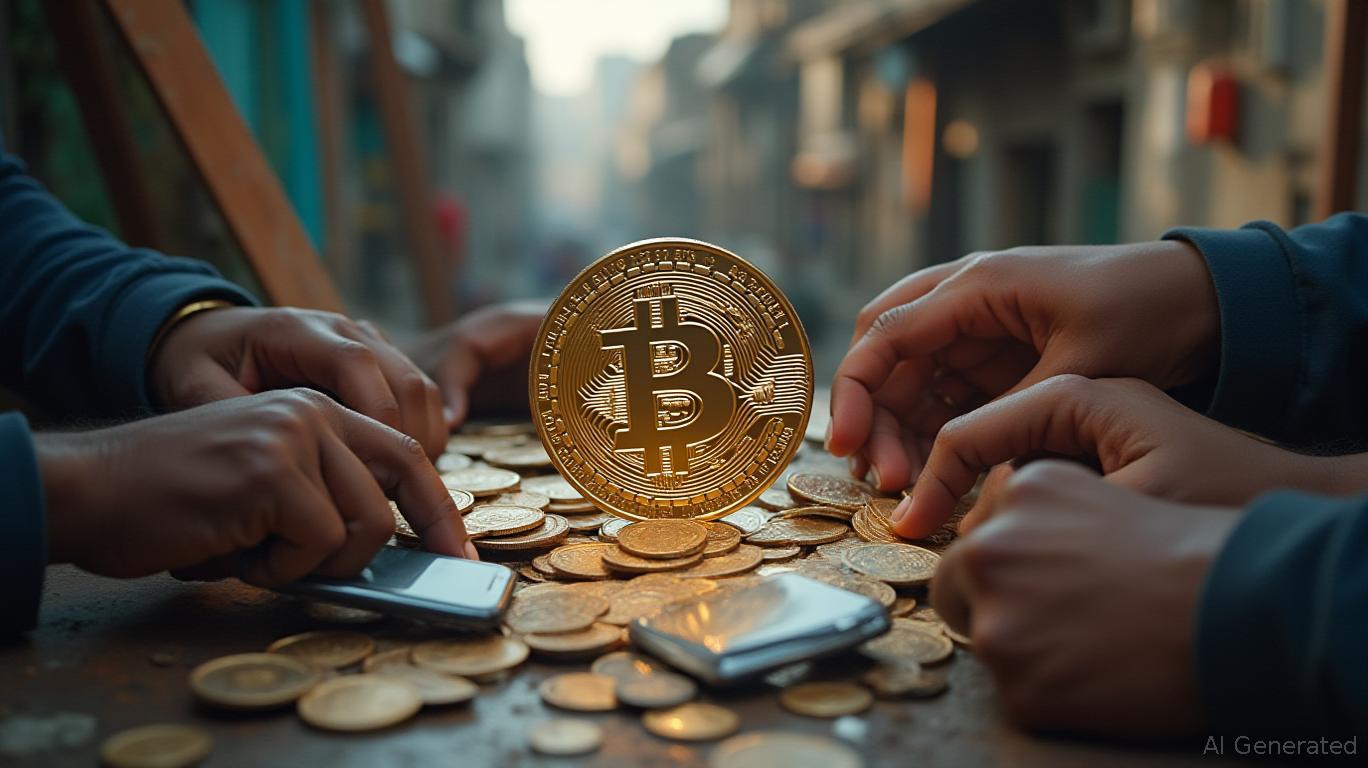Deutsche Telekom's Theta Initiative Marks Telecom and Blockchain Integration in the Age of AI
- Deutsche Telekom joins Theta Network as a strategic validator, expanding blockchain's institutional presence. - As the first telco, it validates transactions on Theta's AI-focused blockchain, partnering with tech giants. - The move highlights Theta's role in decentralized cloud services, leveraging distributed GPU resources. - Deutsche Telekom's blockchain expertise strengthens Theta's credibility in edge computing and AI markets. - The collaboration reflects telecoms and tech firms adopting decentralize
Deutsche Telekom AG has become a strategic enterprise validator node operator for the
In its role as a validator, Deutsche Telekom stakes

Theta Labs, the team behind the blockchain, stressed the strategic value of Deutsche Telekom’s participation. CEO Mitch Liu remarked that the telecom’s involvement highlights Theta’s expanding influence as a leader in decentralized cloud solutions for AI and media. Theta EdgeCloud, the platform’s hybrid cloud-edge computing service, utilizes distributed GPU resources to lower latency and costs compared to conventional providers. The platform has already secured collaborations with organizations such as Stanford University’s AI labs, the Houston Rockets of the NBA, and Ligue 1’s Olympique de Marseille.
Deutsche Telekom’s engagement with Theta builds on its established record of blockchain innovation. Through its subsidiary Deutsche Telekom MMS, the company has provided enterprise-grade infrastructure for networks like
This partnership illustrates a broader industry shift, with telecom and technology companies increasingly adopting decentralized infrastructure to tackle issues of scalability and security. With Theta EdgeCloud delivering 80 PetaFLOPS of distributed GPU computing power, the platform is well-equipped to support advanced applications in generative AI, video processing, and real-time analytics. As interest in decentralized technologies rises, Deutsche Telekom’s alliance with Theta Labs underscores the merging of traditional telecom expertise and blockchain-driven innovation.
---
Disclaimer: The content of this article solely reflects the author's opinion and does not represent the platform in any capacity. This article is not intended to serve as a reference for making investment decisions.
You may also like
Federal Court Affirms Federal Reserve's Authority in Granting Access to Payment Systems
- U.S. appeals court upholds Fed's refusal to grant Custodia Bank a master account, affirming its discretion to manage systemic risk. - Custodia argued its Wyoming charter qualifies for access, but the court emphasized the Fed's authority under the Federal Reserve Act. - Fed's "skinny account" proposal offers limited fintech access, but crypto banks face federal hurdles to parity with traditional institutions. - The ruling highlights tensions between state crypto innovation and federal oversight, with legi

Blockchain-based banking offers a crucial solution to Venezuela's hyperinflation crisis
- Venezuela's Conexus plans to integrate Bitcoin and stablecoins into its banking network via a blockchain-based interbank system, enabling custody, transfers, and fiat exchanges. - The initiative addresses hyperinflation and currency instability, leveraging crypto as an inflation hedge while offering low-cost cross-border payments for 40% of the country's electronic transactions. - Modeled after successful mobile payment systems, the project mirrors global trends like JPMorgan's crypto custody and SWIFT's

Institutional Funds Focus on Energy and Cryptocurrency Sectors for Expansion
- HF Sinclair (DINO) reported $870M adjusted EBITDA in Q3 2025, up from $316M in 2024, driven by refining/marketing gains and $254M shareholder returns. - The stock gained 54% YTD with a Strong Buy rating, mirroring crypto's altseason trends as institutional capital targets high-growth assets. - DINO's $7.12/barrel operating cost efficiency parallels crypto projects optimizing transaction costs, while BTCC's $29B tokenized futures blur traditional-digital asset lines. - Despite $13M renewables loss, DINO's

Solana News Today: SBF Asserts FTX Stayed Solvent, Opponents Argue Legal Actions Destroyed $138B
- Sam Bankman-Fried claims FTX faced a liquidity crisis, not insolvency, and external counsel's actions destroyed $138B in potential value by liquidating assets at fire-sale prices. - SBF's 14-page document asserts FTX held $25B in assets and $16B in equity in 2022, sufficient to cover withdrawal demands, but critics dismiss this as revisionist blame-shifting. - Legal fallout includes $1.4B paid to consultants, $1.15B lawsuit against Genesis, and SBF's 25-year prison sentence upheld by Judge Kaplan for mis
